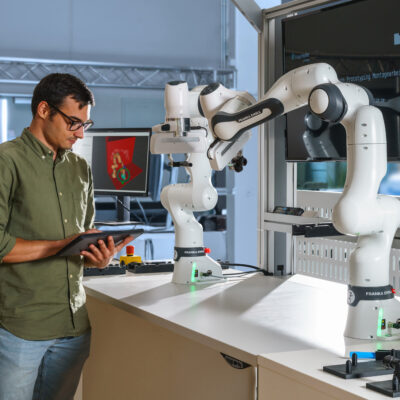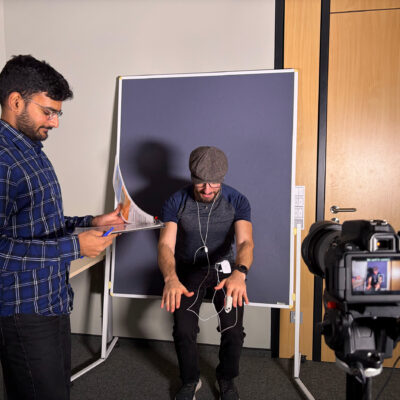For the first time, Bielefeld University has received four Consolidator Grants from the European Research Council (ERC) in the same funding cycle. The prestigious grants have been awarded to the health scientists Professor Dr Anna Oksuzyan and Professor Dr Kayvan Bozorgmehr, the physicist Pro-fessor Dr Gergely Endrödi, and the social anthropologist Dr Megha Amrith. The grants total more than 8 million euros – 7.3 million euros of which will go to Biele-feld University. The four research projects will start in 2024. The ERC Consolidator Grant is highly coveted; during this fund-ing round, only 14.5 percent of applications were approved. In Germany, Bielefeld University is second only to the Ludwig Maximilian University of Munich in the number of applications for Consolidator Grants awarded in this round.
‘It is a phenomenal success that four researchers connected to the university were awarded Consolidator Grants in the same funding round. I extend my congratulations to all four researchers,’ says Professor Dr. Angelika Epple, the Rector of Bielefeld University. ‘They have all distinguished themselves with outstanding publications and international research collaborations. With their research projects now being funded, they are taking the next step in their careers and driving forward their fields of research with new, pioneering work.’
How passive commuting affects family health
The ERC is funding Professor Dr Anna Oksuzyan with the COMFAM project (funding amount: approximately 2.2 million euros). Oksuzyan heads the Department of Demography and Health at the Faculty of Health Sciences. The COMFAM project will investigate the effects of passive commuting, i.e. regularly recurring travel between home and work by a motorised private vehicle or public transportation. A central question here is what the consequences of passive commuting are on the health and well-being of commuters and their family members. This involves analysing whether the health effects of long commutes vary across social groups, for example, by gender, socio-economic status, or migration background. The project uses data from Denmark and Finland, along with survey data from Germany, the UK, and the USA. As Anna Oksuzyan explains: ‘We will use the pandemic as a natural experiment to study the effects of changes in commuting during and after the pandemic.’
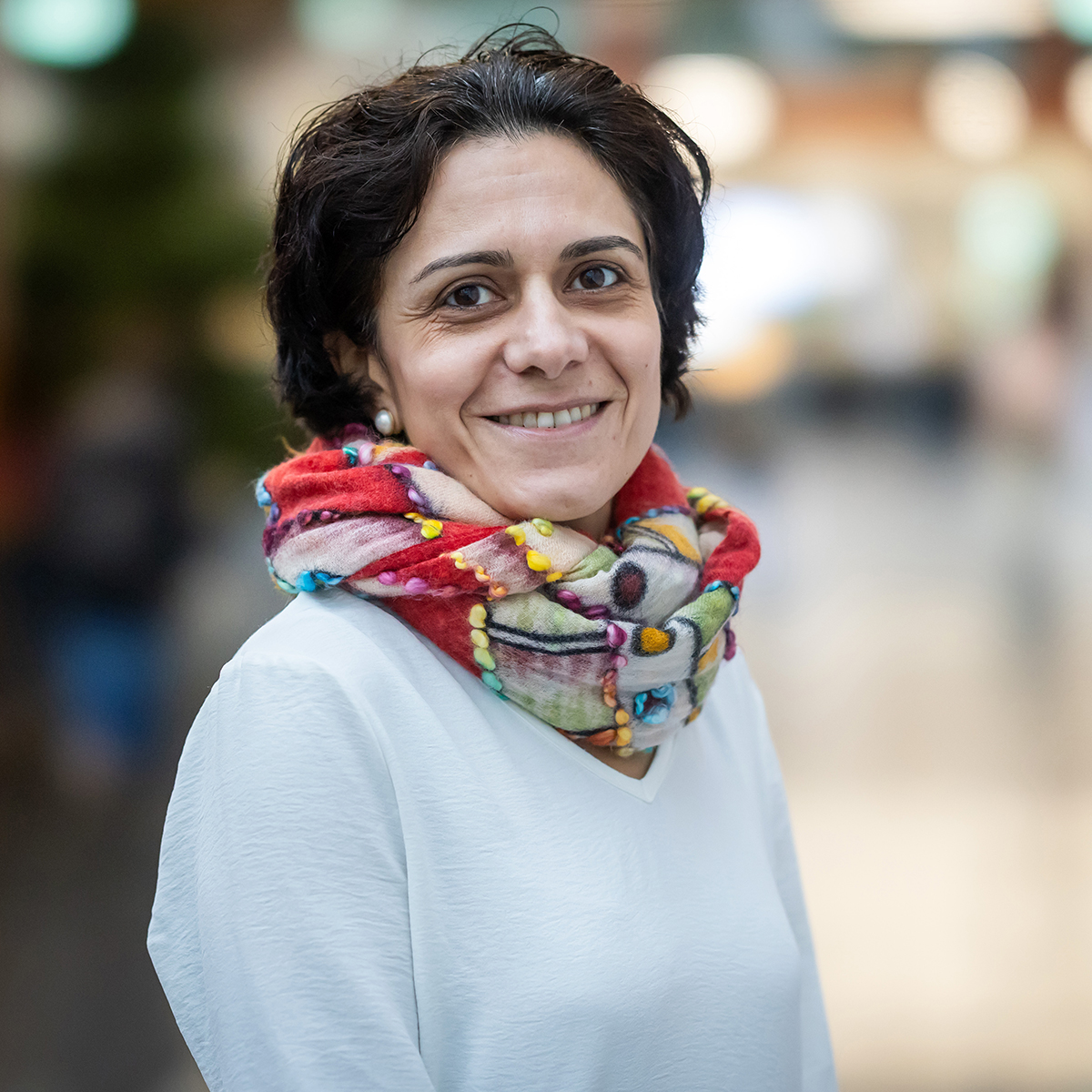
© Sarah Jonek
Anna Oksuzyan joined Bielefeld University in 2021. Born in Armenia, she studied medicine and public health. She completed her PhD in health sciences at the University of Southern Denmark in Odense, where she worked as an assistant professor from 2013 to 2014. From 2014 to 2020, Anna Oksuzyan led a Max Planck Research Group at the Max Planck Institute for Demographic Research in Rostock, Germany.
The impact of living environments on health
Professor Dr Kayvan Bozorgmehr received a Consolidator Grant for his research project titled ‘INTERSECT’ (funding amount: approximately 2 million euros). Bozorgmehr heads the Department of Population Medicine and Health Services Research at Bielefeld’s School of Public Health. In INTERSECT, Bozorgmehr and his team will be investigating the influence of people’s living environments on their health and mortality. ‘A challenge here is that people usually choose their place of residence, and thus have an influence on where they live,’ says Bozorgmehr. This is a severe limitation to claims about cause and effect. This project, therefore, focuses on resettled refugees, who are assigned to their place of residence by authorities in charge. The study makes use of this assignment and the population’s circumstances as a natural experiment. In addition to this, comprehensive data are available on resettled refugees’ health status prior to immigration. This allows to investigate changes in health as a function of the assigned place of residence using innovative data linkage approaches. Bozorgmehr collaborates on this project with the United Nation’s Migration Agency/International Organization for Migration, the Research Data Centre at the Federal Office for Migration and Refugees of Germany, and the Technology and Methods Platform for Networked Medical Research in Berlin.
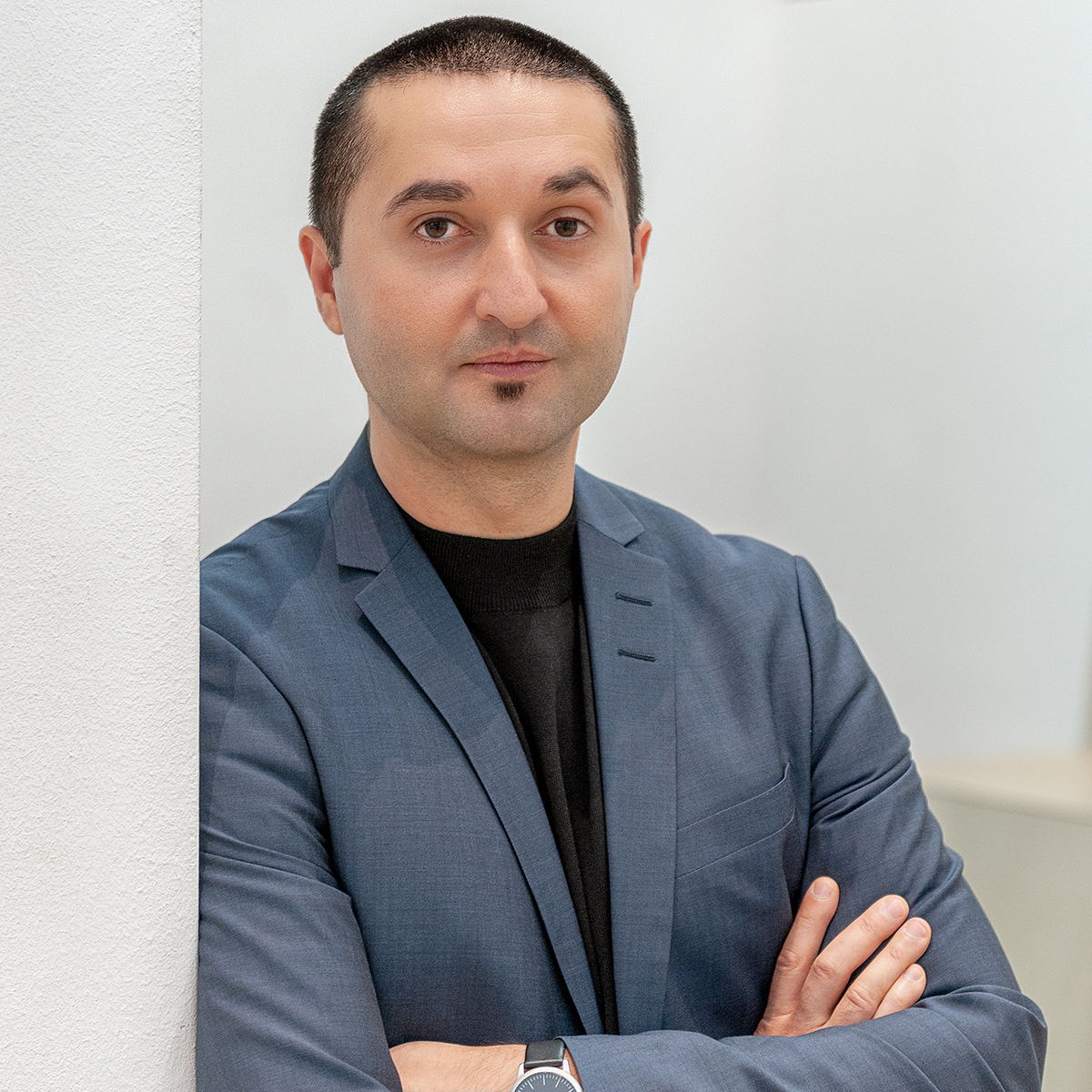
© Britta Kirst
Kayvan Bozorgmehr was appointed full professor at Bielefeld University in 2019. He studied medicine in Frankfurt am Main and received his Master’s in Public Health from Umeå University in Sweden. In 2012, he received his doctoral degree at the Charité – University Medical Centre in Berlin. In addition to heading his working group in Bielefeld, he has also been leading the ‘Health Equity Studies & Migration’ unit at Heidelberg University Hospital since 2020.
Phase transitions in the hot cosmic plasma after the Big Bang
Professor Dr Gergely Endrödi from the Faculty of Physics will be funded by the ERC for the CoStaMM project (funding amount: approximately 1.9 million euros). His project investigates the phase transitions that occurred during the first seconds of the universe, as well as their gravitational wave signatures. Immediately after the Big Bang almost 14 billion years ago, the universe was in a hot and dense state, which started cooling and expanding. ‘How this expansion took place is determined by the building blocks of matter – elementary particles such as quarks and gluons,’ explains Gergely Endrödi. His project examines the phase transitions that the hot cosmic plasma passed through in this process. ‘In certain cases, these can be similar to the boiling of water, where bubbles form. The colliding ‘bubbles’ of cosmic matter could have created gravitational waves – an echo of the phase transition that we can still detect today.’ One important aspect of the project focuses on investigating the thermodynamics of quarks and gluons, taking into account, for the first time, their electromagnetic interaction. Some of the world’s most powerful computers will be used to solve the underlying equations.
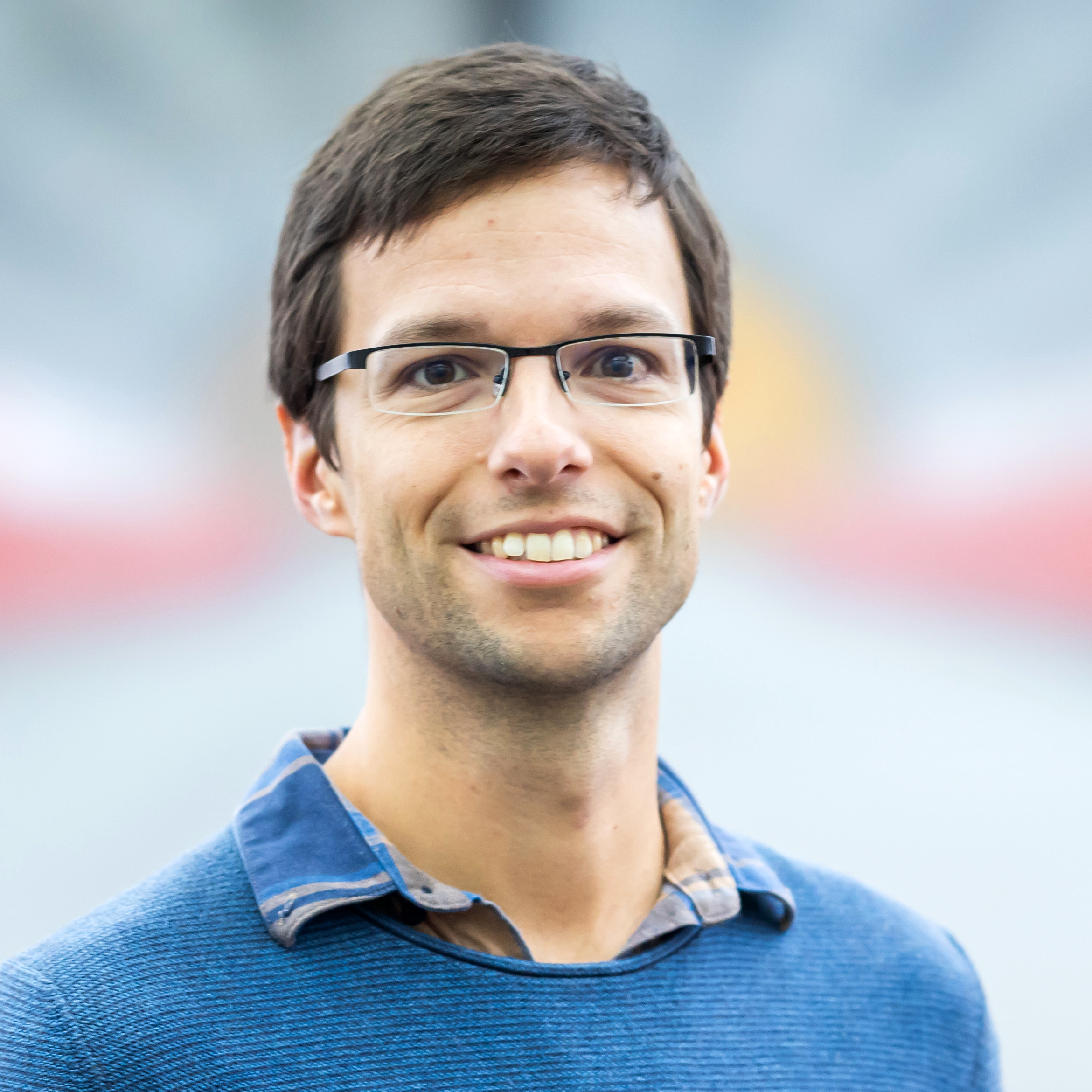
© Sarah Jonek
Gergely Endrödi was appointed Professor of Theoretical Physics at Bielefeld University in 2020. He studied physics at Eötvös Loránd University in Budapest, Hungary, where he also earned his doctoral degree. From 2010 to 2015, he was a post-doctoral researcher at the University of Regensburg, Germany, and headed an Emmy Noether Junior Research Group at the Goethe University Frankfurt from 2016 to 2020.
How the wellness economy is leading to new forms of inequality
The ERC is funding Dr Megha Amrith with the WELL-ASIA project (funding amount: approximately 2 million euros). The social anthropologist leads a Max Planck Research Group at the Max Planck Institute for the Study of Religious and Ethnic Diversity (MPI-MMG) in Göttingen, Germany. WELL-ASIA was acquired by Bielefeld University. The project deals with the commercialisation of well-being as ‘wellness’ in Southeast Asia—a global crossroads for wellness. ‘People are travelling more than ever in search of experiences that promote their wellbeing in a time of perceived uncertainty,’ says Amrith. In Southeast Asia, they are seeking out yoga, meditation and spa retreats, as well as detoxifying diets and anti-ageing therapies. However, little is known about the impacts of the wellness economy. ‘Wellness services depend on the labour of others who often earn little and whose work is poorly protected – migrant workers, for example,’ says Amrith. Her ethnographic study is dedicated to the following question: What social, economic and moral transformations does the pursuit of wellness generate and which new forms of inequality are associated with it?
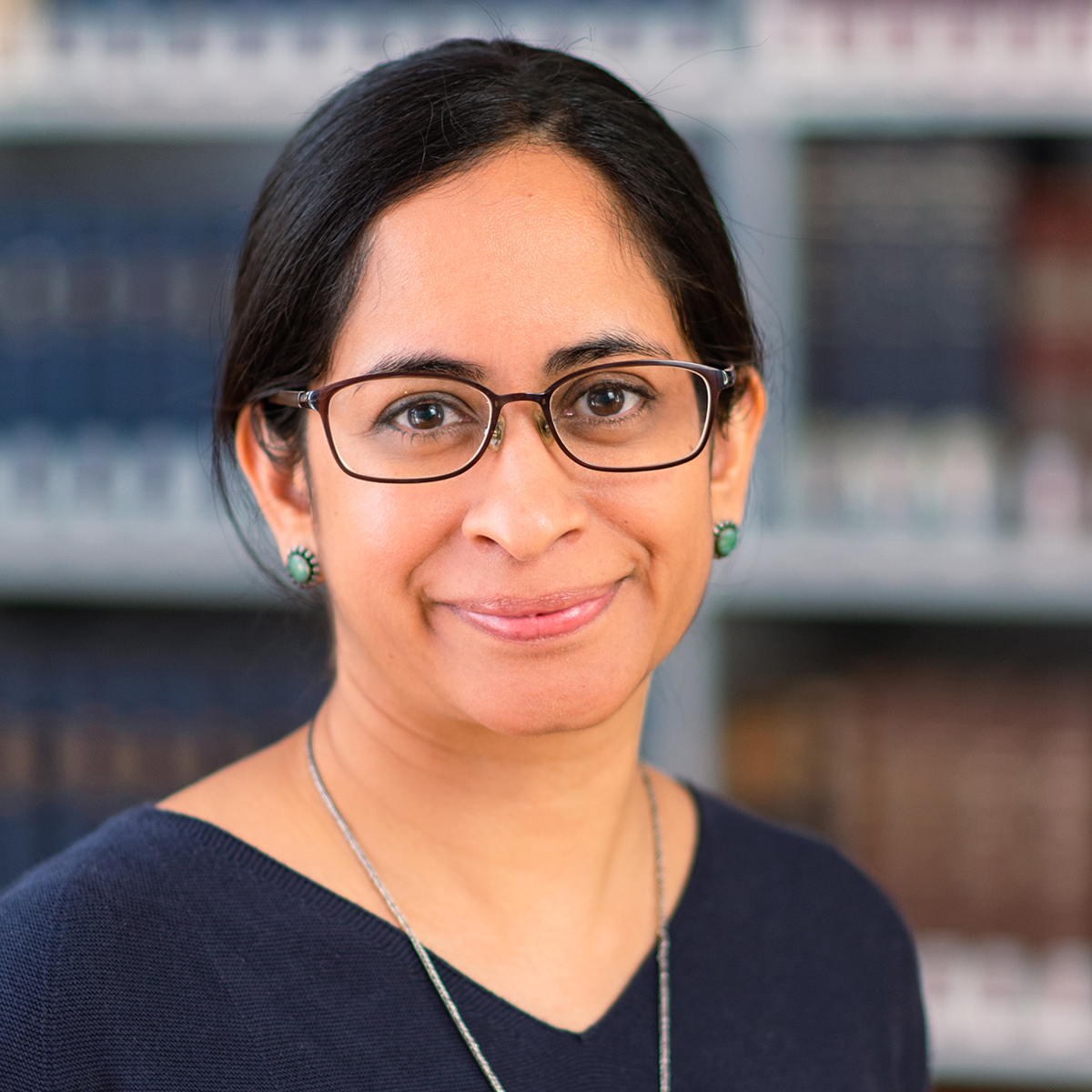
© Kat Hackenberg
Megha Amrith has been heading her Max Planck Research Group ‘Ageing in a Time of Mobility’ at the MPI-MMG since 2017. She received her PhD in Social Anthropology from the University of Cambridge, UK, in 2012. From 2012–2013, she conducted research at the Centre for Metropolitan Studies at the University of São Paulo in Brazil, and from 2014 to 2017 at the United Nations University Institute for Globalisation, Culture and Mobility in Barcelona, Spain.


